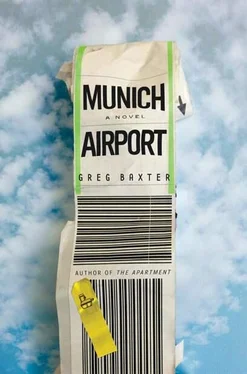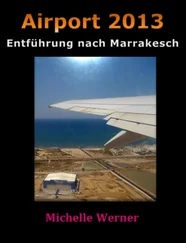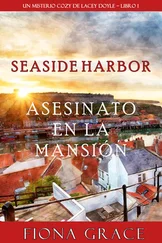Trish says, I understand, of course. She’s speaking to the woman in the gray suit. She turns to me and says, Let’s try something else. I thank the woman for her time, even though I’ve missed the exchange. She tells me she’s sorry they cannot accommodate my father. I hang on to the end of her sentence for a moment, because I am certain she’s going to add something — an alternative solution. But she doesn’t. She just smiles. I’m leaning a little forward now, so I straighten up. Of course, I say, it’s no problem.
We decide to get my father’s painkillers next. Trish rubs her temples and casually says that she needs something for a headache, too. I’ve been so fixated on my own lack of sleep that I’ve failed to notice hers. But she doesn’t complain, or at least she doesn’t complain to me. I still find it quite strange to look at Trish and think of her in the army, in places where real conflict was ongoing. I haven’t asked her about it. I wouldn’t know what to ask. I’ve always had a low opinion of people in the military. I’ve always had a low opinion of patriotism. My father finds Trish’s background fascinating. I’m more interested in her work for the State Department. For the rest of her life, every four or five years she’ll move to a new city. She’ll learn a few more languages. She’ll meet people from all over. She doesn’t know where she’ll go next. After Berlin, she’ll go back to the States, probably for a year, then get posted somewhere else. It sounds like the perfect life, I said to her during our first week in Berlin, and it even felt true to say. If it suits you, it suits you, she said.
Trish points to a drugstore ahead of us. It’s crowded. Like every shop, and every square inch of the terminal, it’s crowded. Though it is a sick time of year, and there are many people who badly need cough syrup, cold and flu relief, or something to stop runny noses, the drugstore — I no longer call them drugstores, but Trish and my father call them drugstores — is mostly full of people who do not actually intend to buy anything. It reminds me of the way tourists walk through chapels and churches — they process very slowly, head vaguely for the altar, then circle back out, pretending to feel neither underwhelmed nor foolish. I can’t really tell where the line begins. I just squirm through some people, then stand around and try to make eye contact with one of the people at the cash registers, which is, I’ve learned, how Germans queue. When I finally get eye contact, I tell the woman, in my rudimentary German, that I am looking for acetaminophen. She warns me that acetaminophen is actually a toxic substance that causes organ damage, and an overdose can lead to death. Trish, who is staring at her phone as we wait, briefly looks up to check that she heard the woman correctly. Ask for ibuprofen, she says. Do you have ibuprofen? I ask. She says she has ibuprofen. The woman is wearing a white lab coat and is very suntanned and wears tortoiseshell glasses that make her seem kinder than she actually is. Ibuprofen can change the structure of your kidneys, she says, after three or four years of continual use. Then she says, Your condition will improve tomorrow anyway, without medicine, but you can never repair the damage you might do to an organ. I look at Trish. I don’t really understand what is happening, or what I should do next. Trish says, Germans don’t take medication, they just suffer. I tell the woman I want the ibuprofen. I ask Trish if she wants her own box or if she just wants to have some of ours. She says she’ll just take one from ours.
I’m going to take four of these pills when we board, I say, and get some sleep. I’d like to sit down, fasten my seat belt, close my eyes as we taxi away from the gate, and wake as the wheels hit the runway in Atlanta.
When was the last time you were in the States? asks Trish.
About a year after my dad’s retirement, about six years ago.
And that was the last time you saw him?
That’s right, but before that I saw him much more often.
There are, here and there, gray doors in the tall gray walls — we pass half a dozen as we make our way back to the food court. The doors are almost invisible in the walls, and beside each is a keypad for airport personnel. The doors are numbered but otherwise unmarked. Trish says, I bet they have a break room somewhere, or a first-aid room, I bet they have a room with a cot or a couch in it.
The first man she flags down tells us to try the Airport Clinic, which is an actual hospital attached to the airport, but my father isn’t sick, he’s tired. And it’s a very long way, a different terminal. The next person we find, a woman, gives us no help at all. This is impossible, utterly impossible, it’s preposterous and self-evidently illogical — that’s the gist of her response. Trish storms back to security, pulls out her diplomatic passport and protocol ID, and declares that she is a US consular officer and she’s in need of assistance. We are taken to a small white room. It’s a room that seems designed to make people feel uneasy, and the moment I step inside I feel guilty of something. I start to sweat and feel nauseous — now the hunger is coming, and the fatigue. It is an office with no windows, no telephone, no clutter, nothing on the walls, just a desk and some chairs. There are three doors in and out of it. There is the door we have entered, and two others, one on the right wall and one on the left, and when a woman finally does appear, she treats our sorrows with an equanimity that suggests she could, at any moment, walk out either of those doors without an explanation. She carries nothing with her. She looks at us like a doctor might look at two hypochondriacs. She sits down opposite us and asks for our flight details. She speaks to us in English. Trish refuses to use English. I hand over our boarding cards. She asks for my father’s passport, and Trish says, This is unnecessary, this is utterly unnecessary. I say, I don’t have my father’s passport. The woman looks up very slowly from our boarding cards, as if to say, What can I possibly do for you if you do not have your father’s passport?
Do you know why we are here? Trish asks.
The woman does not answer that question, either. Instead she says that she is here to take our information. And that is when I realize — and Trish must realize it at the same moment, because she puts her head very softly in her hands — that this is a room where requests are slowly, agonizingly declined, that nothing is possible in this room. Let’s go, says Trish. I ask for the boarding cards. The woman doesn’t want to give them back, and for a tenth of a second I consider the possibility that we have actually gotten ourselves detained, which is of course absurd, but it is how the room makes you feel. The woman hands the boarding cards back. She smiles as though she has done us a favor, and then disappears out one of the side doors — not the one she used to enter. This makes me think that she is moving through a row of rooms, and meeting people like us, people with hysterical requests, rejecting them one after the other. When we leave the room, I ask, When did you learn German? When I arrived two years ago, she says. Do you take lessons? I ask. I take lessons in Arabic and Chinese, she says, twice a week in each. But you’re done studying German, I say. I speak German, she says.
We return to my father. He is upright in his chair with his eyes open, but his gaze is absent and he seems unconscious. For a moment I think that I will have to shake him, and then I think that he is possibly dead. I am inclined to try to lift his hands and see if they drop. I am inclined to shout, Wake up! Instead, I stand and wait, and I observe him. If he really is dead, I think — and then a sharp and undesirable thrill bolts through me — I shall have to bury them both, he and Miriam, and I must permanently move into his house. I will get to wear his skin, inherit the pace of his life. I see myself — I am a little bit older and a little bit fatter — in my father’s pool, my skin is bright red, I am drunk. I float in a pool chair with cup holders. From time to time, I splash water on myself to cool down. I take long floating naps. In the background, the television plays golf or financial news shows. Nobody is there but me, except for the pool guy on Mondays and the gardener on Tuesdays and the maid on Fridays. I refuse to answer the phone. Every once in a while I get in the truck and head to the hardware store, or the gardening supercenter, or shop for groceries at the slowest pace imaginable, using coupons. Then my father blinks, consciousness strikes like a bell in his head, and he turns to us and says, Any luck? Trish says, None, I’m really sorry.
Читать дальше











